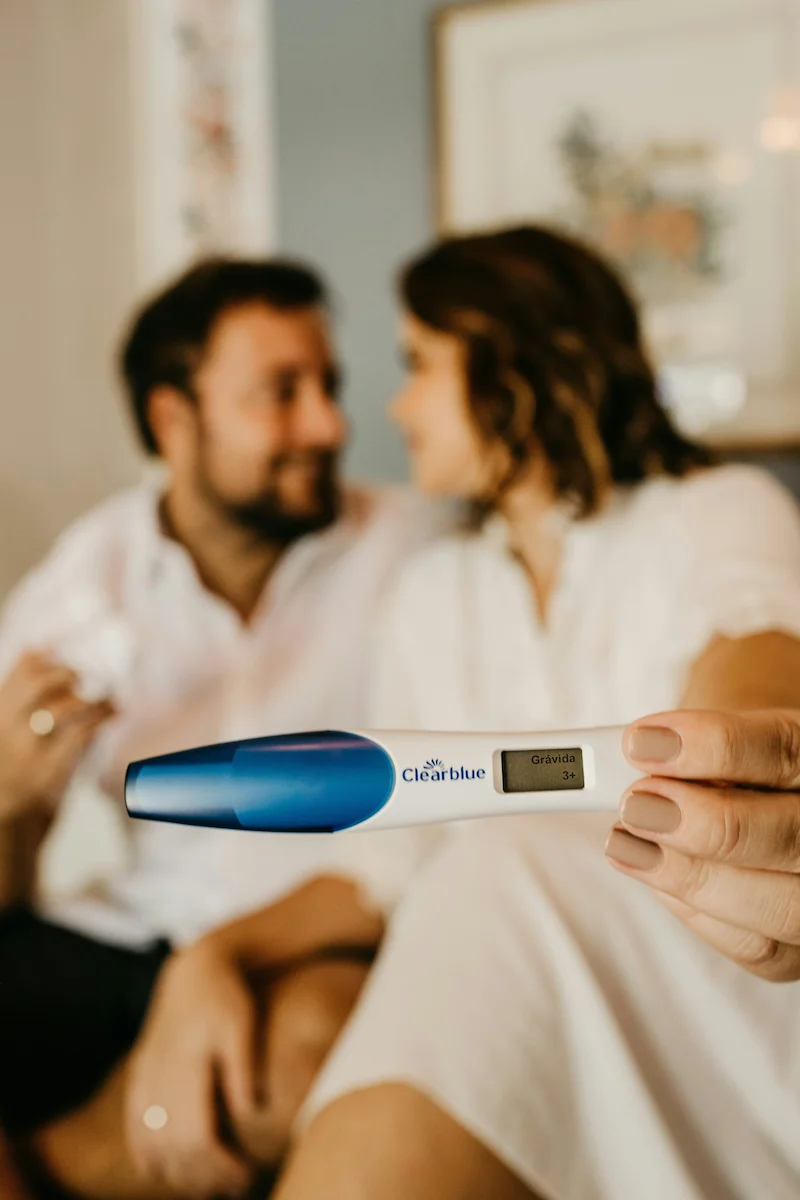Month 1: The Beginning
Weeks 1-4 of Pregnancy

Welcome to the miraculous beginning of your pregnancy journey. Though you may not even know you are pregnant yet, incredible changes are already taking place. This first month includes conception, fertilisation, and the earliest stages of your baby's development.
What is Happening This Month
The first month of pregnancy is counted from the first day of your last menstrual period (LMP). This means that during the first two weeks, you are not actually pregnant yet! Conception typically occurs around week 2 or 3, when ovulation happens.
Week-by-Week Development
Your menstrual period begins. Every month, your body is preparing for potential pregnancy.
Ovulation occurs. An egg is released and moves along your tube ready for fertilisation.
Fertilisation happens! The sperm meets the egg, creating what is known as a zygote that begins dividing rapidly.
Your baby (called a blastocyst at this stage) implants in your uterine lining. You might experience some implantation bleeding.
Your Baby's Development
By the end of month 1, your baby (called a blastocyst at this stage) is tiny - about the size of a poppy seed (0.1-0.2mm). Despite this microscopic size, crucial development is underway:
- The blastocyst continues to divide into hundreds and thousands of cells
- The placenta begins to form
- The amniotic sac starts developing
- The foundation for all major organs is being laid
- Basic genetic characteristics are determined
Size Comparison
Your baby is about the size of a poppy seed
0.1-0.2 mmChanges in Your Body
During the first month, you might not notice many changes, especially in the first few weeks. However, as implantation occurs and hormone (progesterone, in particular) levels begin to rise, you may experience:
Implantation Bleeding
Light spotting when the embryo attaches to the uterine wall
Fatigue
Feeling more tired than usual due to rising progesterone
Temperature Changes
Basal body temperature remains elevated after ovulation
Breast Tenderness
Breasts may feel fuller or more sensitive
Cramping
Mild cramping as the uterus begins to change
Missed Period
The most obvious sign, occurring at the end of week 4
Important Care Tips
Start Folic Acid
Begin taking folic acid (400 micrograms daily), ideally three months before conception or as soon as possible to prevent neural tube defects. In the UK, folic acid is available free on prescription for pregnant women - speak to your GP or pharmacist. A good antenatal or pregnancy vitamin supplement ensures you are getting essential nutrients.
Healthy Lifestyle
Maintain a balanced diet rich in fruits, vegetables, whole grains, and lean proteins. Stay hydrated and avoid alcohol, smoking/vaping, and excessive caffeine (one cup of light filter coffee a day is still ok).
Medical Review
Review any medications with your GP or pharmacist. Some medications may need to be adjusted, changed or or stopped for pregnancy safety.
Gentle Exercise
Continue your usual exercise or introduce a mild exercise routine. Walking, swimming, and antenatal yoga are excellent choices that can be maintained throughout pregnancy.
When to Contact Your GP or attend A&E
While many women do not know they are pregnant in month 1, contact a healthycare professional if you experience any of the following:
- Heavy bleeding (more than a normal period)
- Severe abdominal pain or cramping
- Dizziness or fainting
- Fever over 38°C (100.4°F)
Looking Ahead
As you enter month 2, you will likely discover you are pregnant through a positive home pregnancy test. This is an exciting time to contact your GP practice to register your pregnancy and book your first midwife appointment, which typically happens around 8 weeks. The NHS provides comprehensive antenatal care throughout your pregnancy journey. Remember, every pregnancy is unique, and it is normal to feel a mix of emotions as you process this life-changing news.
